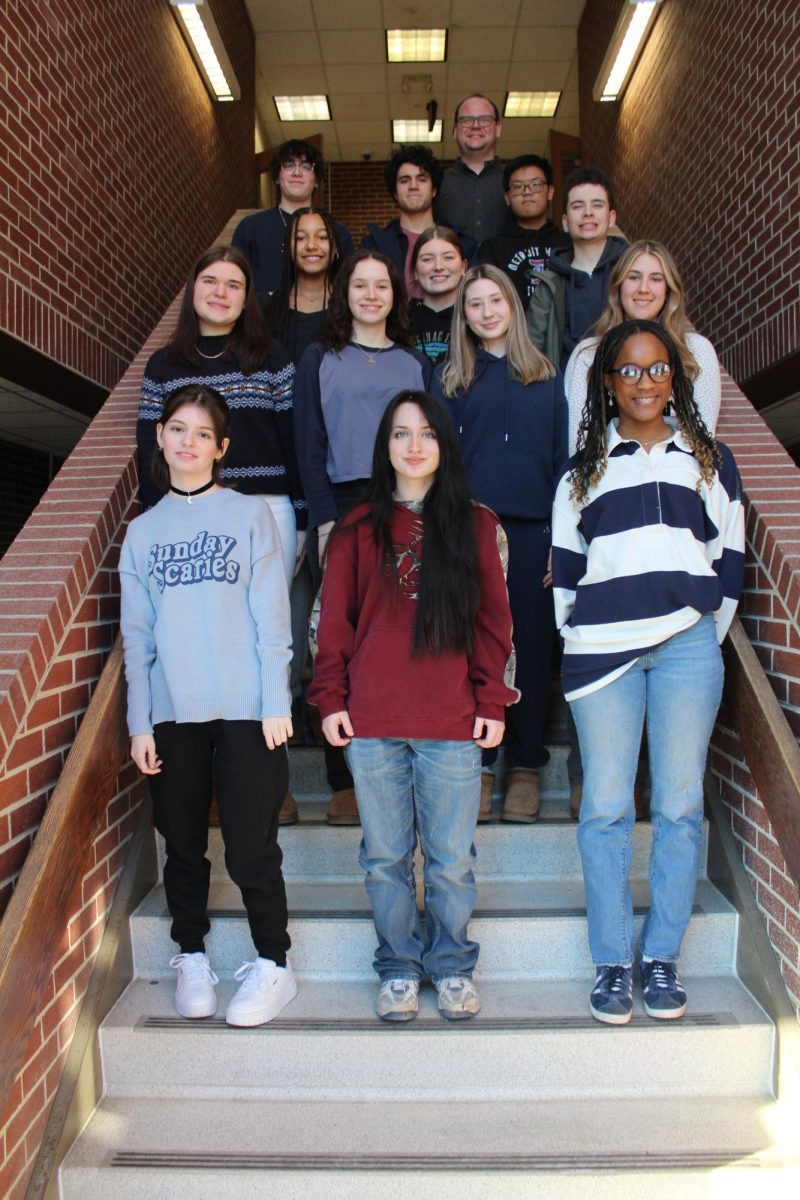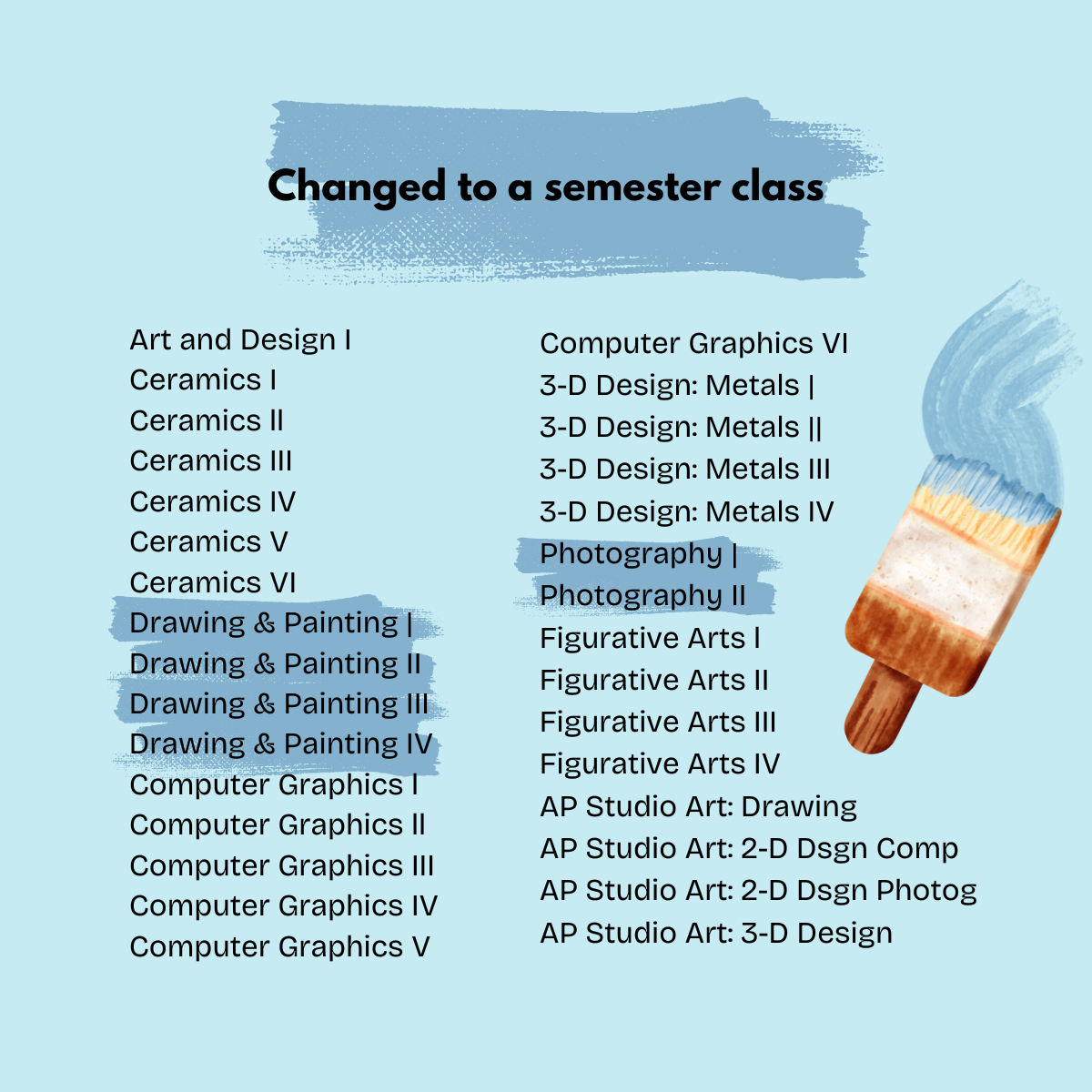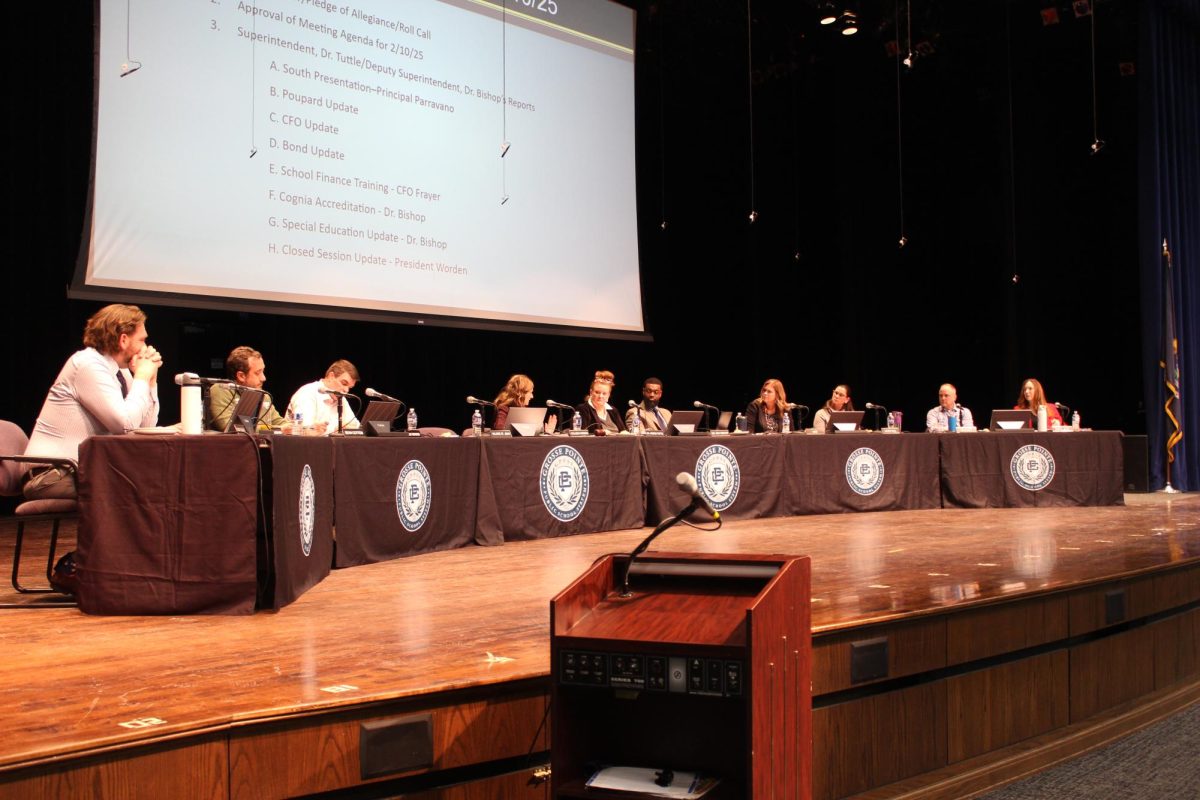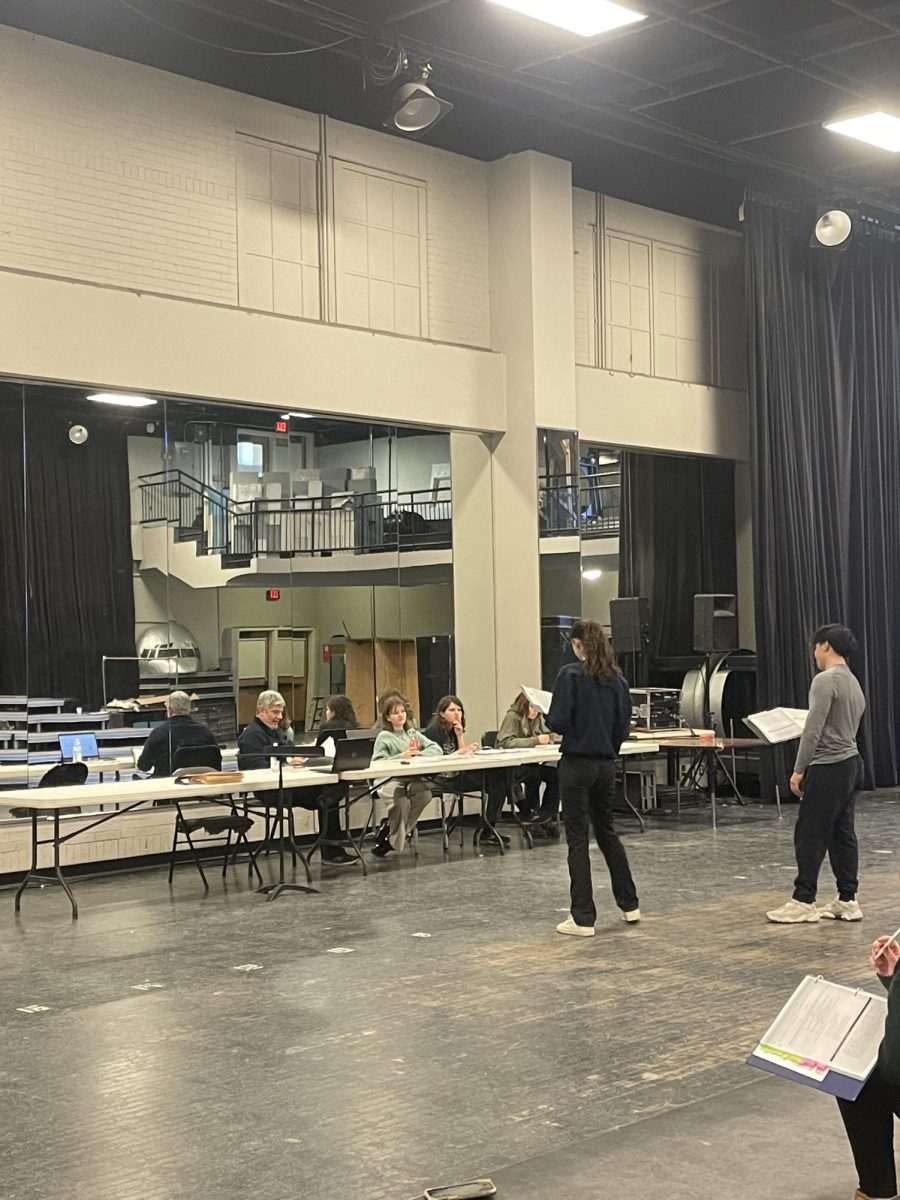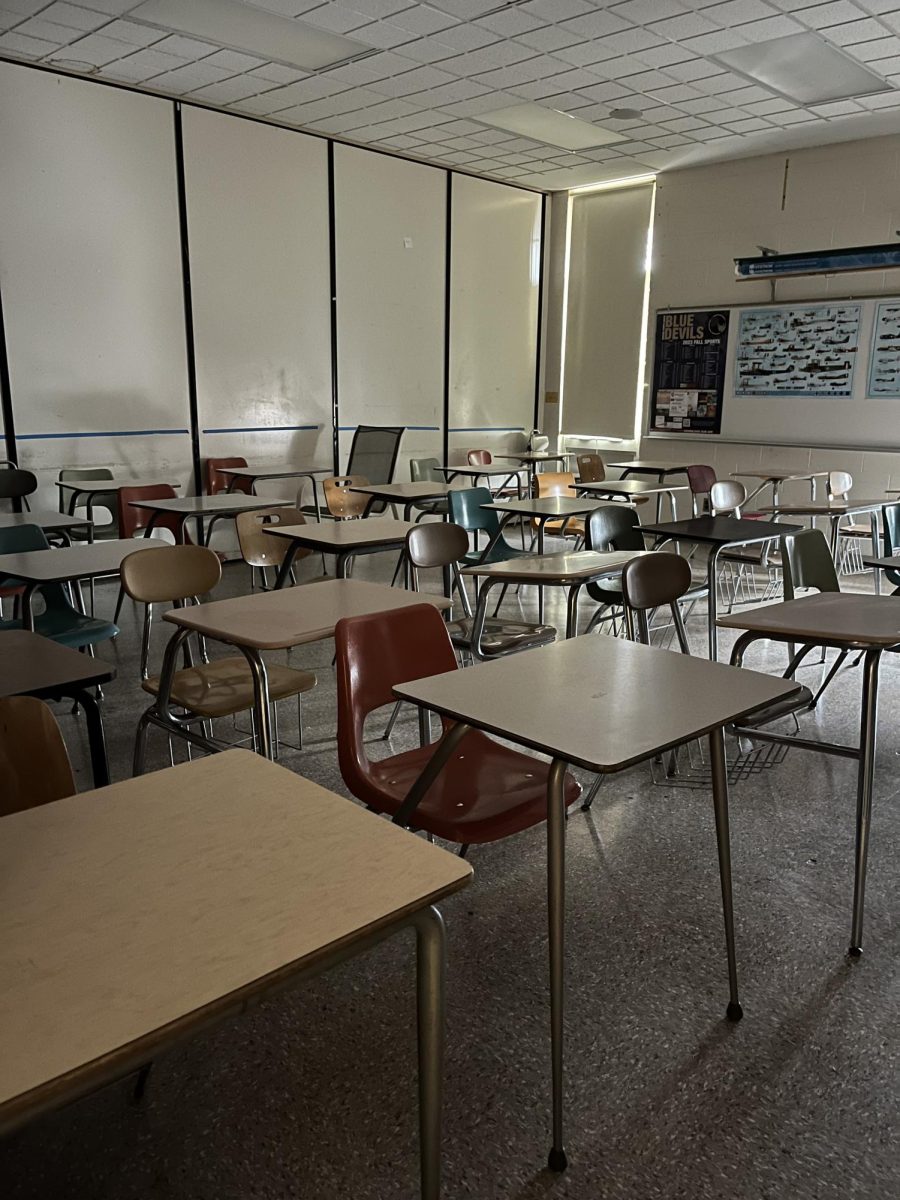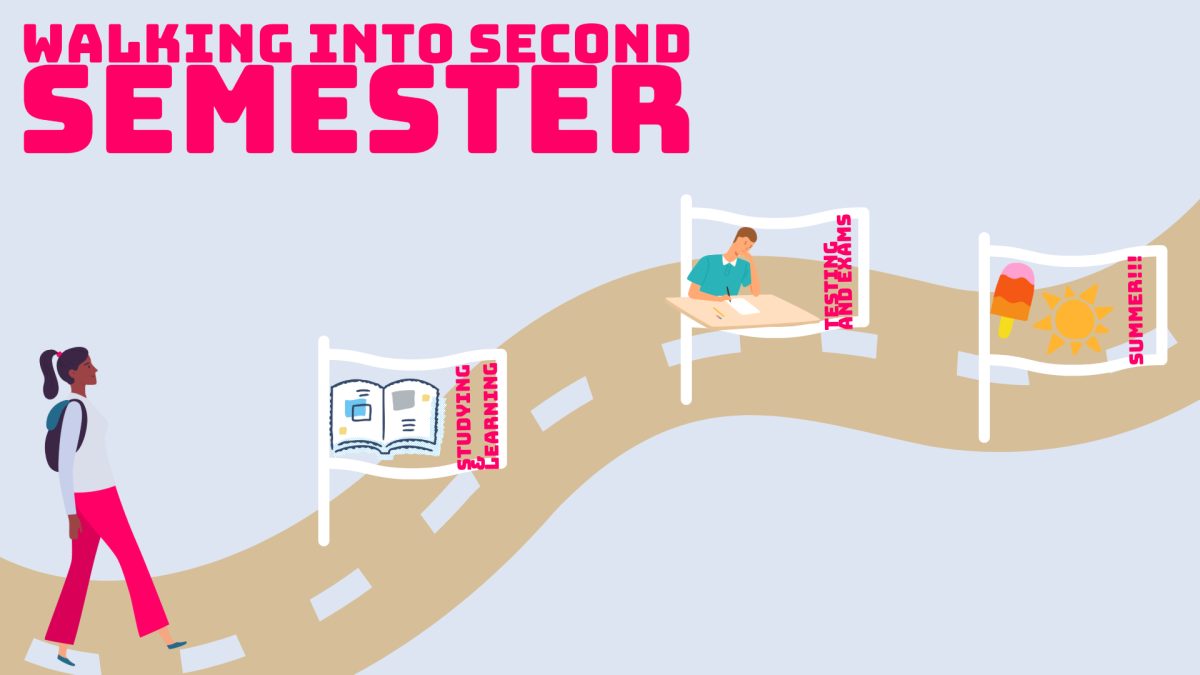In the past few years at South, administration has struggled to keep Social Studies teachers for long periods of time. This rapid turnover in the department has proven to be a challenge for teachers and students alike. The movement of teachers in and out of the department has been hard on students because long term subs must fill the roles, which isn’t ideal.
Consistency in the department has been hard to achieve due to the declining number of students at South. This has resulted in pay cuts, which motivates teachers to seek employment elsewhere, according to Social Studies teacher Kendra Caralis. Over the past nine years, Caralis has worked with 30 different teachers in her department.
“The only teachers that are still here in the department that were there when I started are Mr. Booth and Mr. Hepner, ” Caralis said. “Mrs. Phillips, Mrs. Rothe, Mr. Willburger and Dr. Benjamins all left mid-year.”
Caralis emphasizes that this rapid turnover hasn’t always been a reality for schools. She explains that more and more teachers in the school system don’t live in the district.
“I hate to say it’s just kind of the way things are now with teaching. You know, 20 years ago, people got a teaching job and they stayed in it,” Caralis said. “You’d stay at that job until you’re retired in that same district, now there’s such a teaching shortage that they can look for other districts that might be closer to where they live, or pay more.”
Vice Principal, Cindy Parravano, also recognizes that teachers may move to other districts because the job pays more.
“We’re kind of limited with our budget,” Parravano said. “You can’t pay more than you have. However, I can’t think of a single teacher who left who would’ve stayed if we offered them more money.”
Parravano adds that she doesn’t think that most people in the Social Studies department who have left recently were experiencing dissatisfaction with their job. She states that a majority of teachers who resigned left for personal reasons.
“I can’t compete with a family moving out of state,” Parravano said. “There’s nothing I can do to keep them here.”
Deputy Superintendent for Educational Services Dr. Roy Bishop notes that employee satisfaction may look different for every teacher.
“It goes back to discovering what our teachers desire,” Bishop said. “Doing our best to lift their voices and implement systems that can address their wishes. By listening to teachers, finding ways to support them in their day-to-day environments, and creating a true sense of belonging for them.”
Bishop points out that budget cuts are one reason teachers are leaving, and that job stability may be a major contributing factor.
“Over the last two years we have had to make budget reductions due to declining enrollment and other factors,” Bishop said. “Fewer kids are being born annually across the globe, which impacts funding and unfortunately creates situations where you must have budget reductions.”
Bishop explains that issues with teacher retention and turnover are a global concern in education right now.
Due to the teacher shortage, staff are able to relocate to another district without having to start over with a new payment schedule, which allows them to accept a lesser pay reduction. Teachers are no longer employed by districts until retirement. If it benefits them, teachers who have the means to do so will take leave.
“We are actively working on ways to keep the outstanding educators that we have presently while attracting new teachers to Grosse Pointe,” Bishop said. “Continuity is essential. It helps build trust, reliability and connection and supports academic achievement.”
Teachers that build relationships with those they teach become role models, and students may experience difficulties when these role models depart. Full-time instructors are more qualified and have more experience than replacement teachers. Experienced educators know how to create engaging lesson plans that follow a curriculum and keep students interested.
“The more teachers we can retain, the more stable our learning environments will be for our students,” Bishop said. “We also want to make sure students are learning as much as possible.”
It has become incredibly difficult to locate suitable teachers, as there are fewer applications and prospects. This is due to a lack of young people entering the teaching profession. Many young people are not interested in becoming teachers, contributing to the teacher shortage.
“Fewer and fewer people are going into education every year,” Bishop said. “Being a teacher is a hard job. They are often not valued and overworked. They are also highly scrutinized by the media at times.”
This is not only a Grosse Pointe issue, but a national issue. Teachers started leaving their employment because they wanted a better balance in their lives, this is a reason why teachers are leaving the profession.
“Education is a rewarding and vital profession, but it is very taxing on human beings,” Bishop said. “Education has evolved over the years, and more support is needed for our teachers. At the national and local levels, we must shift how we think about education to better support our students and teachers.”
Fewer students means fewer teachers. Given that job security is so low under these conditions, there is always the possibility of teacher layoffs due to declining enrollment. That is why it is essential to keep the teachers that are in the district and hold on to them.
“When you find a good person,” Palen said. “It is important to keep and retain them.”

